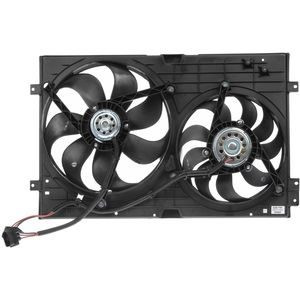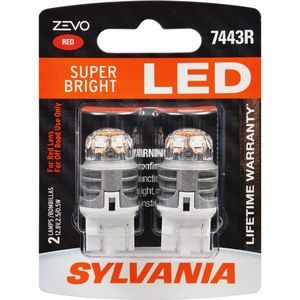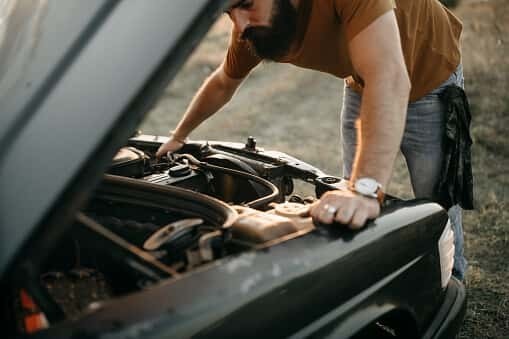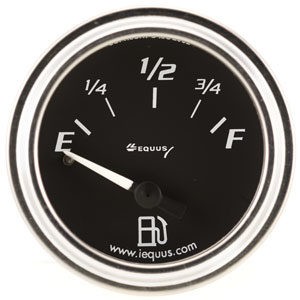How Much Does It Cost To Fix A Car Exhaust? Ultimate Guide
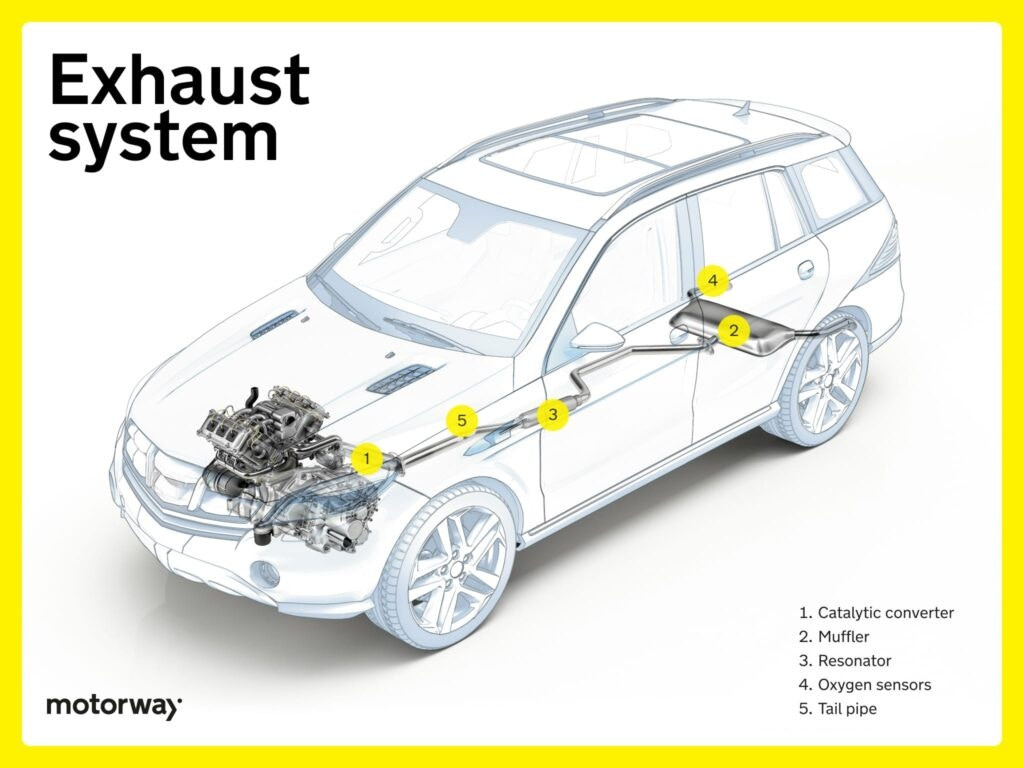
Fixing a car exhaust system is a common car repair task necessary for optimal vehicle functionality. CARDIAGTECH.NET is here to guide you through the process, ensuring you understand the costs involved and how to maintain your exhaust system effectively. Knowing how much exhaust repair costs, understanding exhaust system components and recognizing common issues can save you money and keep your vehicle running smoothly. We’ll cover everything from typical exhaust pipe repair expenses to choosing the right tools and parts.
1. Understanding the Car Exhaust System
The exhaust system is crucial for your vehicle’s performance and environmental impact. It directs and filters gases produced during combustion, ensuring they exit the engine safely, optimizing engine efficiency and reducing harmful emissions. An efficient exhaust system leads to a smoother ride, better fuel economy, and reduced environmental impact, making it vital for overall automotive health.
 Diagram of a car's exhaust system, highlighting key components such as the muffler and catalytic converter
Diagram of a car's exhaust system, highlighting key components such as the muffler and catalytic converter
1.1 Key Components of an Exhaust System
Knowing the parts of your car exhaust helps you understand repair and replacement costs:
- Exhaust Manifold: Collects exhaust gases from engine cylinders into a single pipe, streamlining gas expulsion to enhance engine performance. Made from durable materials like cast iron or stainless steel to withstand high temperatures.
- Catalytic Converter: Reduces harmful pollutants in exhaust gases, converting carbon monoxide and nitrogen oxides into less harmful substances. Essential for maintaining environmental standards and passing MOT tests.
- Midsection: Connects the catalytic converter to the back box, ensuring a smooth flow of treated exhaust gases toward the tailpipe.
- Diesel Particulate Filter (DPF): Traps and reduces particulate matter emissions in diesel vehicles, capturing soot particles and periodically burning them off to maintain emissions standards and fuel efficiency.
- Muffler (Back Box): Reduces noise at the rear end of the exhaust system, using internal chambers to dissipate sound energy from combustion. Different designs cater to various sound preferences.
- Exhaust Hangers: Support the entire exhaust system, securing it to the vehicle’s chassis.
- Sensors (Oxygen Sensors): Monitor exhaust gas composition, aiding in fuel-air ratio adjustments for optimal combustion.
- Flexible Sections (Bellows): Allow movement to reduce stress on the exhaust system.
1.2 Common Exhaust Pipe Problems
Here are some typical exhaust pipe issues:
| Issue | Causes | Symptoms |
|---|---|---|
| Exhaust Leaks | Corrosion or damage to pipes | Hissing noises; increased engine noise |
| Catalytic Converter Failure | Overheating; engine misfires | Decreased performance; illuminated check engine light |
| Muffler Issues | Rust; physical damage | Increased noise; rattling |
| Oxygen Sensor Malfunction | Sensor wear or failure | Poor fuel efficiency; illuminated check engine light |
2. Factors Influencing the Cost to Fix a Car Exhaust
Several factors affect the cost of fixing your car exhaust. Understanding these can help you budget appropriately.
2.1 Type of Repair Needed
The extent of the damage significantly impacts the cost. Minor fixes like patching a small hole are cheaper than replacing an entire exhaust system. For example, fixing a small exhaust leak might only require a simple welding job, while a severely corroded muffler might necessitate complete replacement.
2.2 Vehicle Make and Model
The make and model of your vehicle play a crucial role in determining repair costs. High-end or luxury cars typically have more expensive parts and require specialized labor, increasing the overall cost.
| Vehicle Manufacturer | Average Cost Range |
|---|---|
| Audi | $200 – $700 |
| BMW | $250 – $800 |
| Ford | $150 – $500 |
| Honda | $180 – $600 |
| Land Rover | $300 – $900 |
| Mercedes-Benz | $280 – $850 |
| Nissan | $160 – $650 |
| Toyota | $170 – $620 |
| Vauxhall | $140 – $550 |
| Volkswagen | $170 – $600 |
2.3 Parts and Labor Costs
Parts can vary significantly in price. OEM (Original Equipment Manufacturer) parts typically cost more than aftermarket parts, but they ensure better quality and compatibility. Labor costs depend on the mechanic’s hourly rate and the complexity of the job.
2.4 Location
Geographic location influences repair costs. Urban areas usually have higher labor rates than rural areas. Here’s a general overview:
| Location | Average Cost Range |
|---|---|
| Major Urban Areas | $250 – $700 |
| Suburban Areas | $200 – $600 |
| Rural Areas | $150 – $500 |
3. Average Costs for Common Exhaust Repairs
Let’s break down the typical costs for different types of exhaust repairs.
3.1 Exhaust Pipe Replacement Cost
Replacing an exhaust pipe section can vary depending on the pipe’s location and the vehicle. On average, you can expect to pay between $100 and $400 for parts and labor. Stainless steel pipes may cost more but offer better durability.
3.2 Muffler Replacement Cost
The muffler quiets engine noise, and replacing it usually costs between $150 and $550. The price depends on the car model and the type of muffler used. High-performance mufflers can be more expensive.
 Close-up of a BMW's mufflers, highlighting their position beneath the vehicle's boot
Close-up of a BMW's mufflers, highlighting their position beneath the vehicle's boot
3.3 Catalytic Converter Replacement Cost
The catalytic converter is crucial for emissions control, making its replacement one of the more expensive repairs. Expect to pay between $300 and $1,500, including parts and labor. Prices vary based on vehicle type and converter quality.
3.4 Oxygen Sensor Replacement Cost
Oxygen sensors monitor exhaust gases and help regulate the engine’s fuel-air mixture. Replacing one usually costs between $100 and $300, including parts and labor. Some vehicles have multiple sensors, which can increase the overall cost.
3.5 Exhaust Manifold Repair or Replacement Cost
The exhaust manifold collects exhaust gases from the engine cylinders. Repairing cracks or replacing the manifold can range from $200 to $800, depending on the vehicle and material of the manifold.
4. Signs You Need Exhaust System Repair
Recognizing the signs of a failing exhaust system can save you money by addressing problems early.
4.1 Loud or Unusual Noises
Unusual engine noises like rumbling, hissing, or roaring are often signs of exhaust system problems. These noises can come from a deteriorating muffler or exhaust pipe.
4.2 Decreased Fuel Efficiency
A noticeable drop in fuel economy can indicate a compromised exhaust system. Disruptions in the exhaust system can lead to inefficient combustion.
4.3 Visible Damage
Rust, holes, or physical damage on exhaust pipes indicate potential issues. Corrosion weakens the structure and can cause leaks and reduced effectiveness.
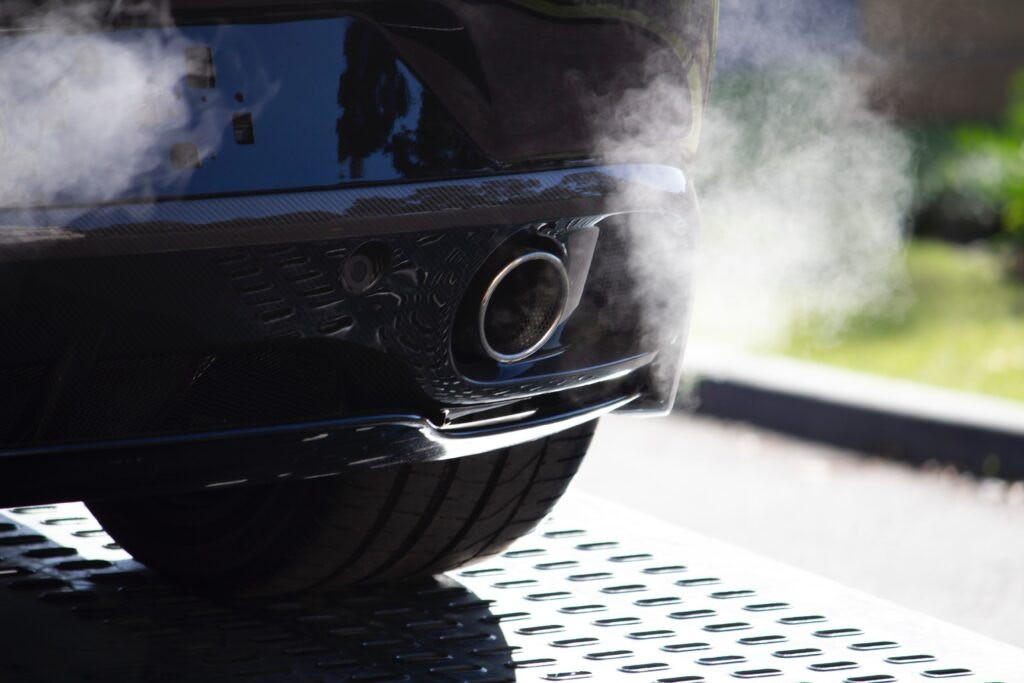 Close-up of an exhaust system on a car, emphasizing the importance of regular maintenance to meet emissions standards
Close-up of an exhaust system on a car, emphasizing the importance of regular maintenance to meet emissions standards
4.4 Smell of Fumes
Smelling exhaust fumes inside or outside your vehicle is a serious issue, indicating a compromised exhaust system. This allows harmful gases to escape, posing health risks and requiring immediate attention.
4.5 Check Engine Light
An illuminated check engine light can signal various issues, including exhaust system problems like a failing catalytic converter or oxygen sensor. A diagnostic scan can pinpoint the exact problem.
5. DIY vs. Professional Exhaust Repair
Deciding whether to repair your exhaust yourself or hire a professional depends on your skills and the complexity of the job.
5.1 When to Consider DIY Repair
If you have experience with car repairs, you can tackle minor issues like patching small holes or replacing exhaust hangers. DIY repairs require tools like wrenches, a jack, and safety gear.
5.2 Benefits of Professional Repair
For complex issues like catalytic converter replacement or extensive exhaust system damage, it’s best to hire a professional. Mechanics have specialized tools and expertise to ensure the job is done correctly. Professional repairs also come with warranties, providing peace of mind.
6. Choosing the Right Exhaust Repair Shop
Selecting a reputable repair shop is crucial for quality service and fair prices.
6.1 Research and Reviews
Read online reviews and ask for recommendations from friends or family. Look for shops with positive feedback and a reputation for honesty.
6.2 Certifications and Qualifications
Ensure the mechanics are certified and qualified to work on your vehicle. Certifications like ASE (Automotive Service Excellence) indicate a certain level of expertise.
6.3 Get a Detailed Estimate
Before authorizing any work, get a detailed estimate that includes parts and labor costs. A reputable shop will provide a clear breakdown of the expenses.
6.4 Warranty
Check if the shop offers a warranty on their repairs. A warranty protects you if the problem recurs or if the repair is not done correctly.
7. Tools and Equipment for Exhaust Repair
Having the right tools makes exhaust repair easier and safer.
7.1 Basic Hand Tools
Essential tools include wrenches, sockets, screwdrivers, and pliers. A good set of these tools is a must for any DIY repair.
7.2 Specialized Tools
Specialized tools like an exhaust pipe cutter, oxygen sensor wrench, and welding equipment can be necessary for certain repairs. CARDIAGTECH.NET offers a range of high-quality tools to help you with your exhaust repair needs.
7.3 Safety Equipment
Safety gear is crucial for protecting yourself during exhaust repair. Wear safety glasses, gloves, and a respirator to avoid inhaling harmful fumes or getting injured.
8. Maintaining Your Exhaust System
Regular maintenance can extend the life of your exhaust system and prevent costly repairs.
8.1 Regular Inspections
Inspect your exhaust system regularly for signs of rust, damage, or leaks. Addressing minor issues early can prevent them from becoming major problems.
8.2 Proper Driving Habits
Avoid aggressive driving, which can put extra stress on the exhaust system. Smooth acceleration and deceleration can help prolong its life.
8.3 Addressing Issues Promptly
If you notice any signs of exhaust problems, address them promptly. Ignoring issues can lead to further damage and more expensive repairs.
9. The Impact of a Damaged Exhaust System on Your Car’s Value
A damaged exhaust system affects your car’s value, potentially leading to legal issues if you don’t meet emissions regulations.
9.1 Depreciation
A damaged exhaust system signals neglect or potential underlying issues, depreciating your car’s value. The extent of the damage determines the impact. Minor, easily repairable issues have a smaller effect, while major damage significantly reduces the car’s value.
9.2 Providing Maintenance History
Detailed records of repairs and maintenance, particularly concerning the exhaust system, can ease potential buyer concerns and help maintain your car’s value.
10. Frequently Asked Questions (FAQs)
10.1 Is it illegal to drive with a broken exhaust?
Yes, it’s illegal and unsafe. A damaged exhaust emits harmful fumes, risking fines for violating emissions and safety regulations.
10.2 Is it worth replacing the exhaust?
Yes, it’s worth it. Replacing a damaged exhaust improves performance, increases fuel efficiency, and ensures you meet emissions standards.
10.3 How much does it cost to replace a muffler?
Muffler replacement costs vary, averaging from $140 to $550, depending on vehicle model, location, and muffler type.
10.4 Can I replace my exhaust system myself?
Minor repairs, like patching holes, can be DIY if you have experience. Complex issues require professional help.
10.5 How often should I inspect my exhaust system?
Inspect your exhaust system at least twice a year or during every oil change.
10.6 What are the symptoms of a failing catalytic converter?
Symptoms include decreased performance, illuminated check engine light, and failed emissions test.
10.7 How can I improve my car’s fuel efficiency?
Ensure your exhaust system is in good condition, maintain proper tire pressure, and avoid aggressive driving.
10.8 What tools do I need for DIY exhaust repair?
Essential tools include wrenches, sockets, screwdrivers, pliers, and safety gear.
10.9 How does location affect exhaust repair costs?
Urban areas typically have higher labor rates than rural areas, increasing repair costs.
10.10 Are OEM parts better than aftermarket parts?
OEM parts ensure better quality and compatibility, though they are usually more expensive than aftermarket parts.
11. CARDIAGTECH.NET: Your Partner in Automotive Repair
At CARDIAGTECH.NET, we understand the challenges you face as auto repair professionals. That’s why we offer a comprehensive range of tools and equipment designed to enhance your efficiency, accuracy, and profitability. Our products are tailored to meet the needs of young technicians, experienced mechanics, and garage owners alike.
11.1 Enhance Efficiency and Reduce Repair Time
Our advanced diagnostic tools and equipment help you quickly identify and resolve issues, reducing repair time and increasing your shop’s throughput. With CARDIAGTECH.NET, you can streamline your workflow and get more jobs done in less time.
11.2 Increase Accuracy and Safety
Accuracy is crucial in auto repair. Our precision tools ensure that every job is done right the first time, minimizing errors and enhancing safety. This not only protects your customers but also boosts your reputation.
11.3 Cost Savings for Your Customers
By using CARDIAGTECH.NET tools, you can offer your customers cost-effective solutions. Accurate diagnostics and efficient repairs reduce the likelihood of repeat visits and unnecessary expenses, building trust and loyalty.
11.4 Boost Revenue and Profitability
Efficient and accurate repairs lead to increased customer satisfaction and repeat business. With CARDIAGTECH.NET, you can enhance your shop’s reputation, attract more customers, and ultimately boost your revenue and profitability.
11.5 Address Your Challenges with CARDIAGTECH.NET
We recognize the physical demands of your job, the constant exposure to grease and chemicals, and the need to stay updated with the latest automotive technology. CARDIAGTECH.NET provides solutions that make your work easier, safer, and more rewarding.
12. Call to Action: Contact CARDIAGTECH.NET Today
Ready to take your auto repair business to the next level? Contact CARDIAGTECH.NET today to discover how our tools and equipment can transform your operations.
12.1 Free Consultation
Schedule a free consultation with our experts to discuss your specific needs and find the perfect solutions for your shop.
12.2 Special Offers
Take advantage of our special offers and promotions on select tools and equipment.
12.3 Contact Information
Address: 276 Reock St, City of Orange, NJ 07050, United States
WhatsApp: +1 (641) 206-8880
Website: CARDIAGTECH.NET
Don’t let outdated tools hold you back. Partner with CARDIAGTECH.NET and experience the difference that quality, precision, and innovation can make in your auto repair business. Contact us today and let us help you achieve your goals.
[



